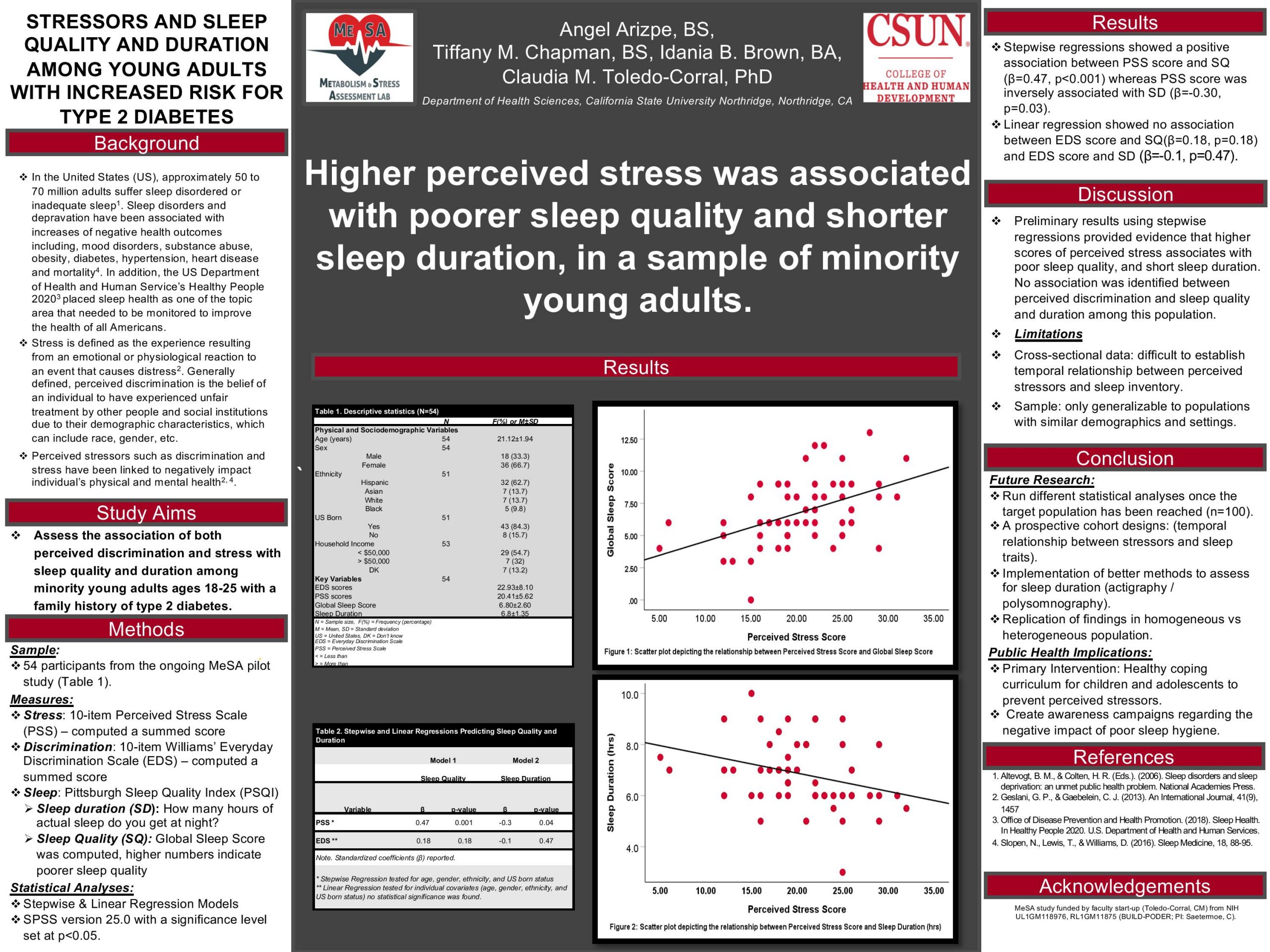Angel Arizpe, B.S., Tiffany M. Chapman, B.S., Idania B. Brown, B.A., Department of Health Sciences, Claudia M. Toledo-Corral, Ph.D., Deparment of Health Sciences, California State University, Northridge, Northridge, CA
Background: Perceived discrimination, stress, and sleep difficulties have been associated with health outcomes such as cardiovascular diseases, psychological disorders, and unhealthy health behaviors. Minority groups have a higher prevalence of low sleep duration (< 7 hours) than their Caucasian counterparts. One theory is that perceived discrimination and stress may contribute to these sleep rates. The aim of this study is to assess the association of both discrimination and stress with sleep quality and duration among primarily minority college
students ages 18-25 with a family history of type 2 diabetes (T2D).
Methods: Data for this study were collected from the ongoing Metabolism and Stress Assessment (MeSA) pilot study with the primary aim of determining obesity risk factors among young adults with a family history of T2D. The target population for the pilot study is (n=100). Participants completed the Williamsʼ Everyday Discrimination Scale (EDS), Cohenʼs Perceived Stress Scale (PSS10), and the Pittsburg Sleep Quality Index (PSQI). EDS scores were categorized into tertiles (low, moderate, and high) for descriptive purposes. PSS scores were categorized into quartiles with a cut of 0-9 for no/low stress, 10-15 medium- low stress, 16-20 medium stress, and more than 20 highly stress. Sleep quality and sleep duration were assessed using the respective single-item questions from the PSQI. Spearmen Rho correlations were performed to determine if there was a relationship between EDS and sleep quality and duration.
Results: At baseline, participants (n=24) mean age was 21.33 years (SD=1.83) and 66.7% female. There were 56.5% Hispanic, 21.7% Asian, 13% White, and 8.3% Black. The mean amount of sleep duration was 6.7 hours (SD=1.04). Results showed that there was a moderate positive correlation between EDS and sleep quality (r =.53, p=.008), but not for sleep duration (r = -.19, p=.39). For perceived stress, sleep quality showed a moderate positive correlation to PSS (r = .65, p=.001) and a moderate negative correlation to sleep duration (r = -.66, p<.001). Conclusion: Our results suggest that higher discrimination and perceived stress were associated with poor quality sleep and short sleep duration. Our early results suggest that further study of perceived stressors and its relationship to sleep traits are warranted.
*This poster was presented at The American Psychosomatic Society annual meeting. The sample size reflects that of March 2020.
